Key takeaways:
- Ocean conservation is essential for maintaining planetary health, and our daily choices significantly impact marine ecosystems.
- Ocean education fosters responsibility and empowers individuals to make informed decisions that protect marine environments.
- Experiential learning and community involvement are crucial strategies for effective ocean education, enhancing engagement and advocacy.
- Personal experiences, such as beach clean-ups and educational field trips, highlight the importance of hands-on involvement and the emotional impact of marine education.
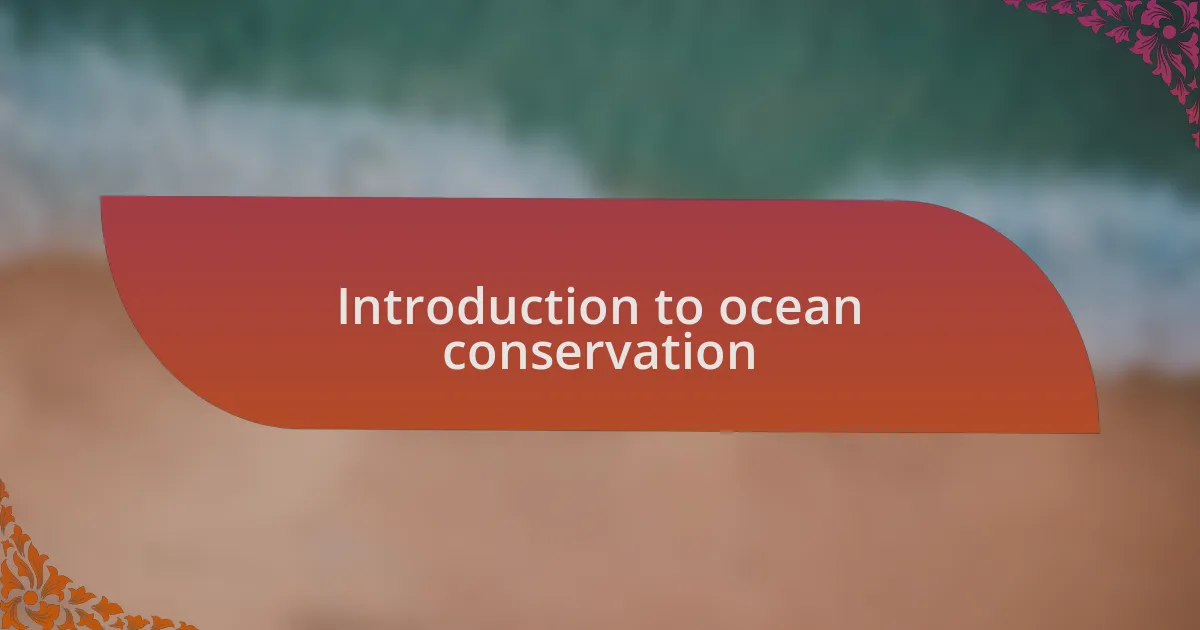
Introduction to ocean conservation
Ocean conservation is an urgent and essential endeavor, as our oceans cover more than 70% of the Earth’s surface and are vital for the health of our planet. Reflecting on the times I’ve stood on a beach, watching the waves crash and feeling the salt air, I’ve often wondered about the unseen battles occurring in those waters. What if we could also focus our attention on the invisible ecosystems beneath the surface?
The plight of marine life weighs heavily on my heart. I recall a visit to a coral reef that was once vibrant but now appears almost ghostly due to bleaching. It raised questions for me: How do we nurture and protect these ecosystems from climate change and pollution? These are not just ecological issues; they touch on our responsibility as stewards of the Earth.
In the midst of the vast blue, it’s easy to forget that our actions directly impact ocean health. Have you ever thought about the connection between your daily choices and the health of marine environments? By embracing ocean conservation, we can safeguard these amazing ecosystems and ensure future generations can appreciate their beauty and the life they harbor.
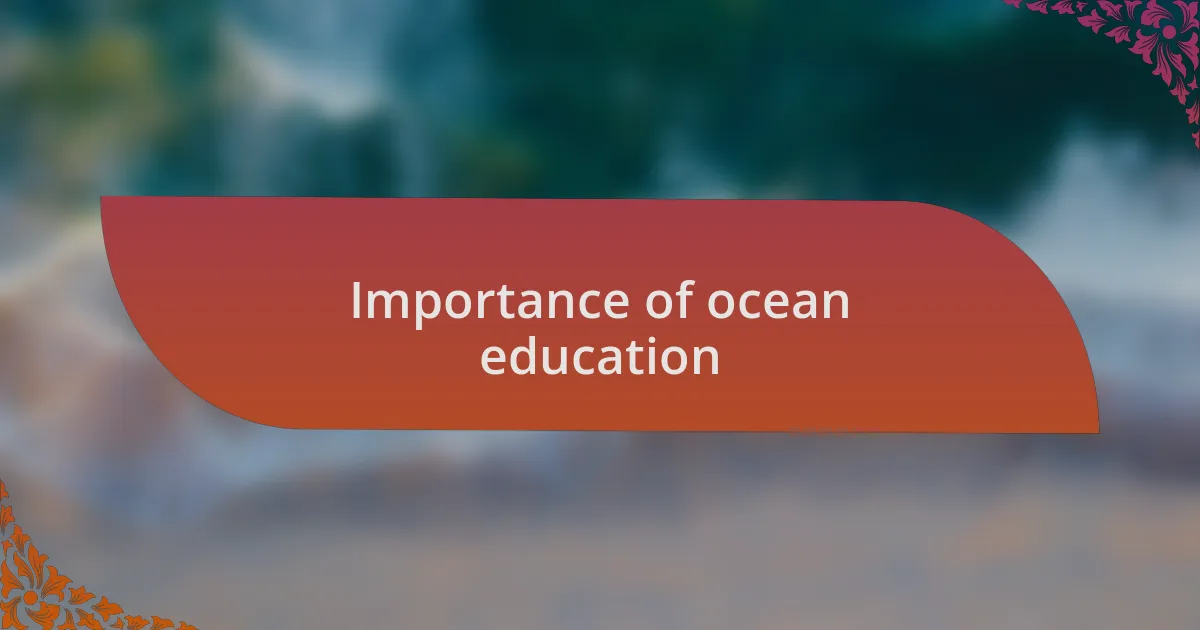
Importance of ocean education
The importance of ocean education cannot be overstated. I vividly remember the awe I felt during a workshop where we dissected the relationships between various marine species. Knowing that my understanding could contribute to protecting their habitats was empowering. This connection fosters a sense of responsibility; how can we care for something we don’t truly understand?
Learning about ocean ecosystems helps illuminate the critical role they play in regulating our climate and supporting biodiversity. There was a moment when I observed local students cleaning a beach while discussing the impact of plastic pollution. Their enthusiasm was infectious, reinforcing my belief that education inspires action. Isn’t it gratifying to witness young minds actively engaging in the preservation of what sustains us?
Furthermore, ocean education enhances our ability to make informed decisions about the products we consume and how we interact with our environment. I recall feeling overwhelmed by the myriad choices at a grocery store, but knowing how certain items affect our oceans allowed me to choose more wisely. Have you felt that enlightening shift in perspective? Educating ourselves about the ocean empowers us to make choices that protect these vital waters.
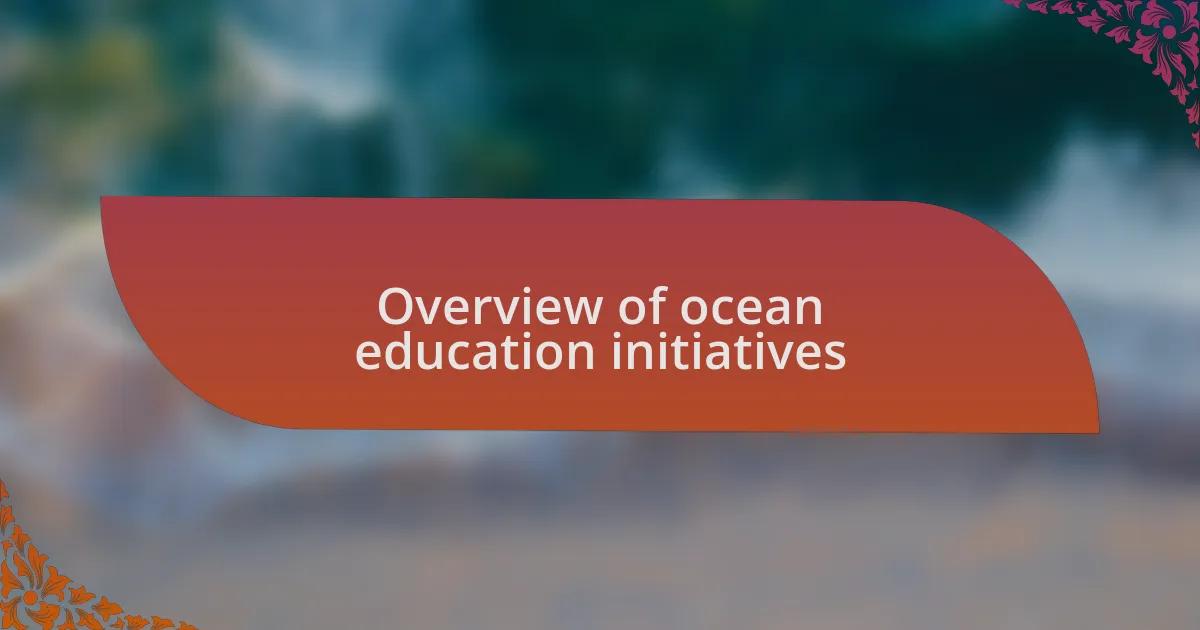
Overview of ocean education initiatives
Ocean education initiatives are diverse and multifaceted, aiming to bridge the gap between knowledge and action. I recall visiting a marine center where they offered workshops on sustainable fishing practices. Watching attendees learn about the balance of marine life and how our choices impact it was truly eye-opening. How often do we consider the broader consequences of our everyday actions on these delicate ecosystems?
Programs that integrate hands-on experiences, such as beach clean-ups and citizen science projects, enrich learning significantly. Participating in a local coral restoration project brought the complexities of reef ecosystems to life for me. As I carefully planted coral fragments while discussing their roles in marine habitats, a profound realization struck me: practical engagement makes the lessons unforgettable. Why do we often remember experiences more vividly than facts alone?
Additionally, educational partnerships with schools and community organizations play a pivotal role in spreading awareness. I remember collaborating with local educators to develop ocean-themed curricula that sparked curiosity and passion among students. Their eagerness to learn and protect our oceans was inspiring. It makes me wonder—could nurturing that enthusiasm lead to a new generation of ocean advocates?
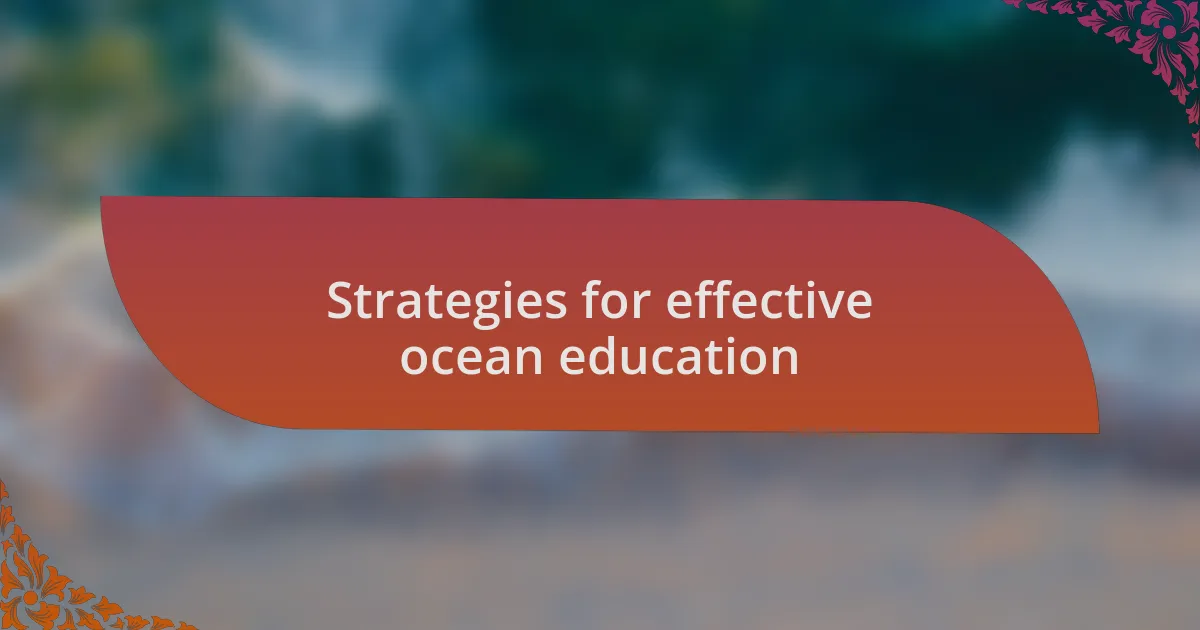
Strategies for effective ocean education
Strategies for effective ocean education must prioritize experiential learning. I recall working with a group of students on a marine debris survey. As they examined trash collected from the shore, their faces morphed from amusement to concern when realizing the sheer volume of waste we generate. Isn’t it fascinating how direct involvement can shift perspectives so profoundly?
Another strategy involves leveraging technology to captivate a wider audience. I once participated in a virtual reality experience that simulated life underwater, allowing me to interact with marine species in their habitats. It struck me how technology can bridge distances, enabling people in landlocked regions to appreciate oceanic wonders. Isn’t it remarkable how a simple headset can foster empathy towards an ecosystem miles away?
Lastly, fostering community involvement is essential for sustainable ocean education. I’ve seen firsthand how local fishers shared their traditional knowledge in workshops, instilling a sense of heritage and responsibility in younger generations. When community members are champions of education, it creates a ripple effect that can lead to broader advocacy and change. Could there be a more effective way to inspire stewardship than by learning from those who have always lived connected to the ocean?
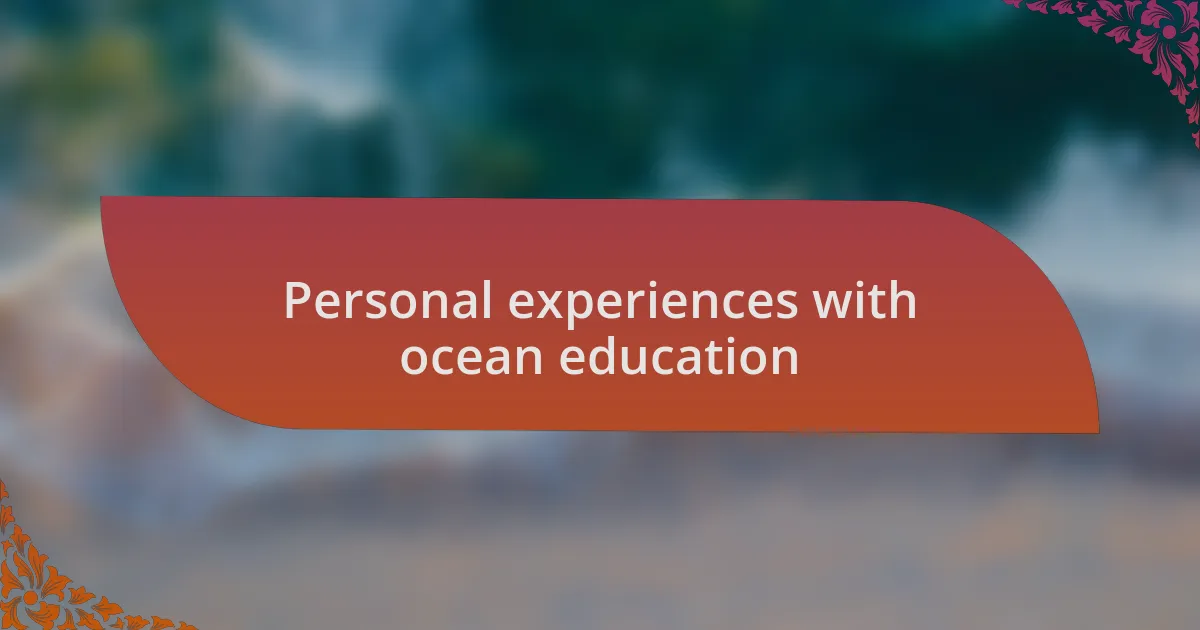
Personal experiences with ocean education
Participating in a beach clean-up a few years ago was a defining moment for me. I was struck by the realization that what I thought was a small undertaking could make a significant difference. As I picked up plastic bottles and wrappers, I felt a heavy weight in my heart, knowing each piece was a reminder of our environmental impact. How could we let such a beautiful space become a dumping ground?
Another memorable experience occurred during an educational field trip where we explored tidal pools. Watching children squeal with delight as they discovered vibrant sea anemones and starfish was electrifying. Their sheer excitement reminded me that curiosity is a powerful teacher. I often wonder, how can we harness that youthful wonder to inspire lasting ocean advocacy?
One of the most profound instances of ocean education for me was attending a lecture by a marine biologist who shared first-hand accounts of coral bleaching. As she spoke passionately about the devastation, I could feel her urgency resonate within me. It became clear that her knowledge was not just facts, but a call to action. I often reflect on that moment, realizing that powerful storytelling in education can ignite passion and commitment in ways that statistics alone cannot.